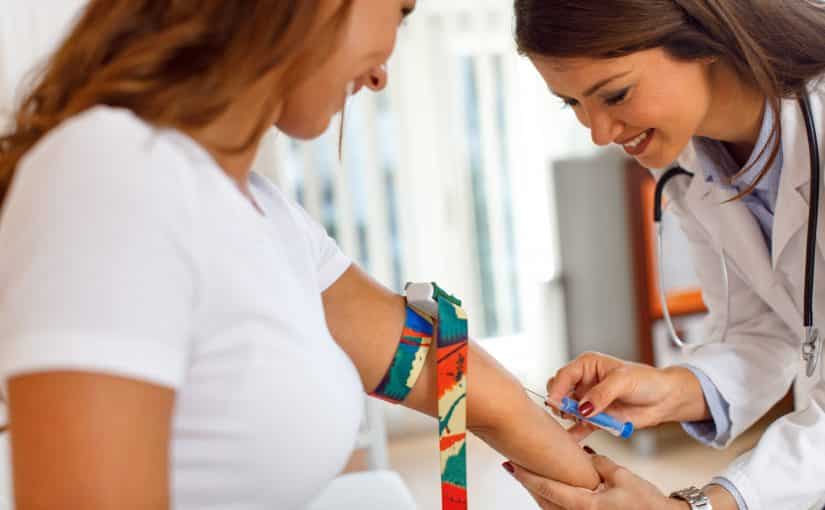Health is important for everyone. Living life without having to worry about health-related problems is something that a lot of people dream of. Health problems interfere with our priorities in life, especially other aspects that we want to focus on.
These interferences are often a result of neglect or lack of attention towards things that might point out our current health status. Blood tests should be part of habitual health checks for all women. Even if you think you’re fine and you feel perfectly healthy, there’s no guarantee that you are unless you get your numbers checked.
Regular checkups are the key to peace of mind when it comes to your health, and they ensure that you avoid unnecessary health problems in the future. This article will discuss several blood tests that women should get and why they’re important.
Blood Sugar Test
Worldwide, an estimated 422 million people have diabetes, and around 1.6 million die due to diabetes complications every year. Diabetes prevalence (% of population ages 20 to 79) in Sweden was reported at 4.8 % in 2019, according to the World Bank collection of development indicators, compiled from officially recognized sources. Although men are slightly more prone to diabetes, women’s complications are more serious and are more likely to result in death.
A blood sugar test measures the glucose level in your blood by using a blood sugar meter, measuring your fasting glucose level or your HbA1C, an average of your blood sugar over the last 3 months. Hence, it’s important to observe a fasting period of at least 8 hours where you aren’t allowed to eat anything.
A healthy range of blood sugar is less than 100 milligrams per deciliter and an HbA1c lower than 5.7%. If your levels are over 100mg/dL – 125mg/dL, your body probably isn’t using insulin. The hormone that moves sugar into the cells to use it for energy, or that your body isn’t making enough of it and you’re in the prediabetes range should consider lifestyle changes that prevent you from progressing full-blown diabetes.
Usually, blood sugar is checked once or twice a year. However, your doctor might recommend you to get checked more frequently if you have a high blood sugar level.
TSH (Thyroid-stimulating Hormone)
The thyroid is a gland in the neck that regulates metabolism. It produces hormones, namely TSH or Thyroid-stimulating Hormone, and Thyroxine. An underactive (hypothyroidism) or overactive thyroid gland (hyperthyroidism) results in a lot of issues. These include difficulty sleeping, constant tiredness, sensitivity to heat, general weakness, and commonly, swelling in your neck as a result of an enlarged thyroid gland, also known as a goiter.
Women are more likely than men to have an underactive or overactive thyroid gland, and as a result, they are also more prone to complications.
Generally, individuals under 60 shouldn’t worry about hypothyroidism or hyperthyroidism. Still, a regular checkup is recommended once you start to feel symptoms like fatigue, and increased appetite, an increased heartbeat rate, sensitivity to cold, brittle hair and nails, and excessive changes in weight.
Hyperthyroidism is often treated with synthetic thyroid hormone pills daily, and Hyperthyroidism is treated with radioactive iodine, antithyroid medicine, or even surgery. A TSH of 0.4 – 4.0 milli-international units per liter or mIU/L and a T4 of 4.5 – 11.2 micrograms per deciliter or mcg/dL is a healthy range. If your levels are higher or lower, you should immediately consult a doctor.
Vitamin D or 25 hydroxyvitamin D Test
Vitamin D is essential for bone strength, and a deficiency results in a loss of bone density that leads to osteoporosis and fractures. A severe vitamin D deficiency can also lead to other diseases like rickets in children that cause bones to become soft and bend.
Older women are more likely to have vitamin D deficiency because our skin doesn’t produce it efficiently from sun exposure as we age and tend to spend less time outdoors. Your doctor will be the one to recommend how often you need to have your levels tested based on your age, diet, and level of sun exposure.
A concentration of 30 nanograms/milliliters or ng/mL is a healthy range. If your level is lower, you will need to eat more food containing vitamin D like dairy, salmon, cod liver oils, and fortified food.
With all these in mind, make sure to call your doctor and get your blood tests. You can also opt to order specific health checks online through our website.

